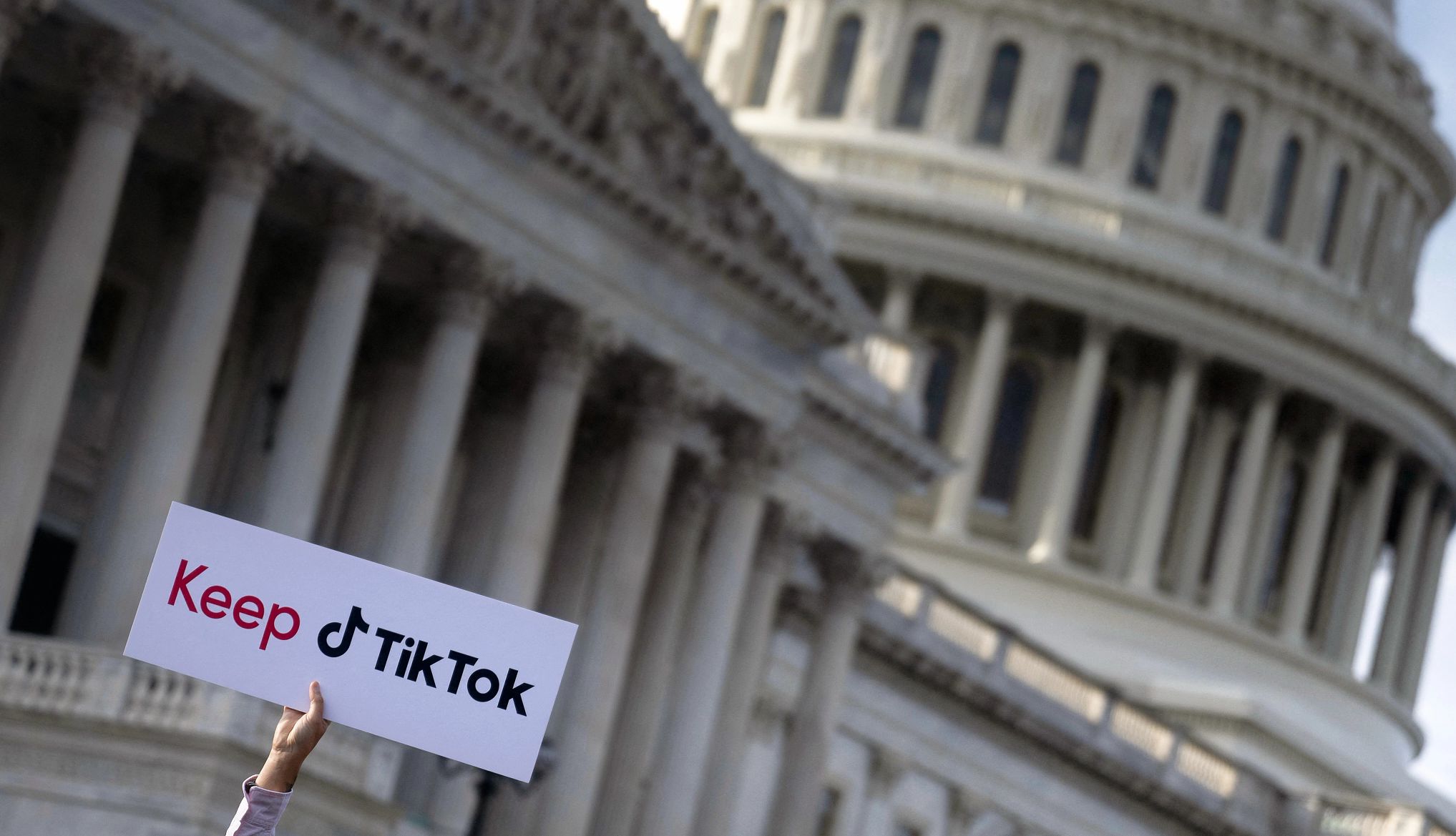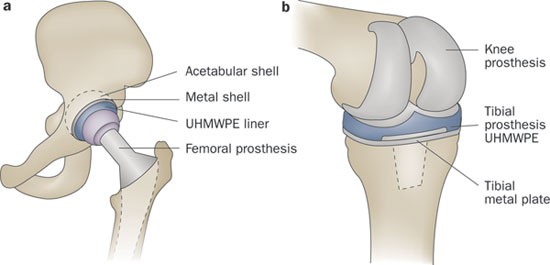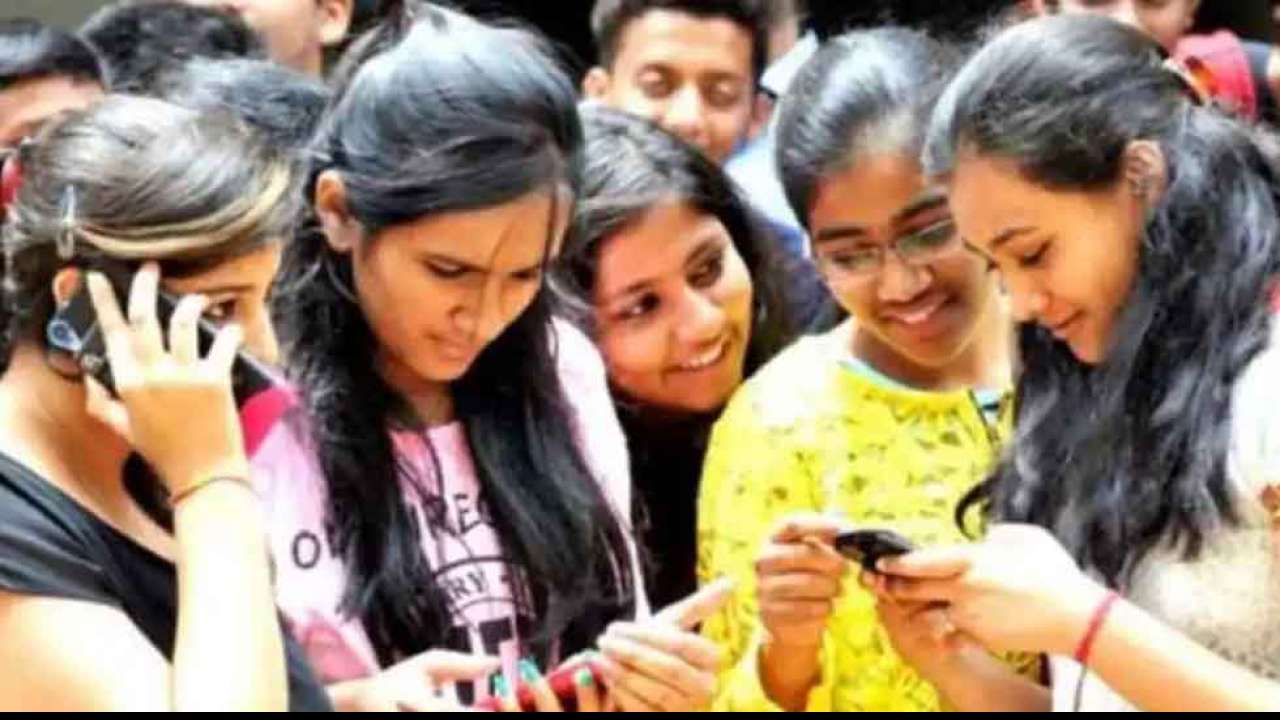
- Select a language for the TTS:
- UK English Female
- UK English Male
- US English Female
- US English Male
- Australian Female
- Australian Male
- Language selected: (auto detect) - EN
Play all audios:
TikTok's temporary lease on life was extended Friday after President Donald Trump added 75 days to a previously signed executive order to delay a federal ban on the Chinese-owned app,
That ban had been set to begin on Saturday. The president's original executive order delaying a ban was signed in January after the U.S. Supreme Court unanimously upheld a 2024 law
banning the radioactive short-form video app unless ByteDance, its Chinese parent company, found an American buyer by Jan. 19. Lawmakers in favor of shutting down TikTok cite national
security risks; critics counter that it’s an assault on free speech. The original order instructed the attorney general not to take action to enforce the TikTok ban for 75 days, "to
allow my administration an opportunity to determine the appropriate course forward in an orderly way that protects national security while avoiding an abrupt shutdown of a communications
platform used by millions of Americans." The President announced the latest extension on his Truth Social platform, stating that "we hope to continue working in Good Faith with
China, who I understand are not very happy about our Reciprocal Tariffs..." Any eventual shutdown has potentially devastating consequences for 170 million monthly users who’ve made the
app wildly popular in the United States. Many of them are “grandfluencers” and others 50 and older, including some who leverage the platform to earn or supplement their income. In January,
before President Trump signed the first executive order, TikTok briefly shut down in the United States, followed by other apps ByteDance controls through its subsidiaries. “I’ve been mostly
in denial,” says Helen Polise, a New Yorker, whose 64th birthday fell on Jan. 20, a day after the initial ban was supposed to go into effect. Polise has amassed 1.1 million followers for her
@themothership handle on TikTok, where she teaches courses on creating videos for social media outlets and websites, as well as helping “older people stay relevant.” CHARITABLE CAUSES,
INCOME STREAMS WILL BE AFFECTED “This is going to impact the financial livelihood of so many people,” says Polise, who derives around 30 percent of her income from TikTok even while
spreading her wings to rival social media outlets. Video: Cobbler Keeps His Craft Alive on TikTok A FOCUS ON HIS PROFESSION. One such person is Jim McFarland, a.k.a. @americascobbler, a
60-year-old shoe repairman in Lakeland, Florida, who became a social media sensation by showcasing his craft on TikTok. He has more than 1.3 million followers and reports getting 30 percent
to 35 percent of his business from the platform. “If they take this away, it’s not just me,” McFarland says. “I’m thinking of all these creators that are plumbers and electricians and all
these tradespeople that are showing us how to do these things ourselves that we never had a clue [how to] to do.” A CAREGIVING COMMUNITY. Retired Northern California lawyer Dan Salinger, 57,
has posted thousands of TikTok videos in four years as @dsalnorcal, mostly about caring for his 92-year-old father, Ed, who has dementia. The younger Salinger makes some money on TikTok but
says the majority of his social media income comes from other apps. He considers the ability to reach and inspire other caregivers more critical. Video: Son Uses TikTok to Humanize Dementia
Caregiving “People with dementia are real people, living real lives and impacting other lives. I think my particular channel caught on because it’s so common,” Salinger says of many of his
2.1 million followers. “TikTok gives these people an opportunity to look at other people and say, ‘They’re just like me. They’re struggling just like me. I’m OK,’ ” he says. “That is going
to be lost.” CHARITY FOR VETERANS. Octogenarian Kenny Jary, alias @patriotickenny, also has a message to spread on TikTok. The nonprofit Patriotic Kenny Foundation gives away free mobility
scooters to veterans, and he was able to establish it with the help of a TikTok following that numbers 2.7 million. A ban “would hurt us a lot,” he said before the Supreme Court decision,
and he was giddy when the app subsequently returned. "Yes, yes, we're not in the dark. ... We're not in the dark. We're in the light," he said. "It's not
over yet. Believe me, it's not. Now we can go on about our business and then some."





